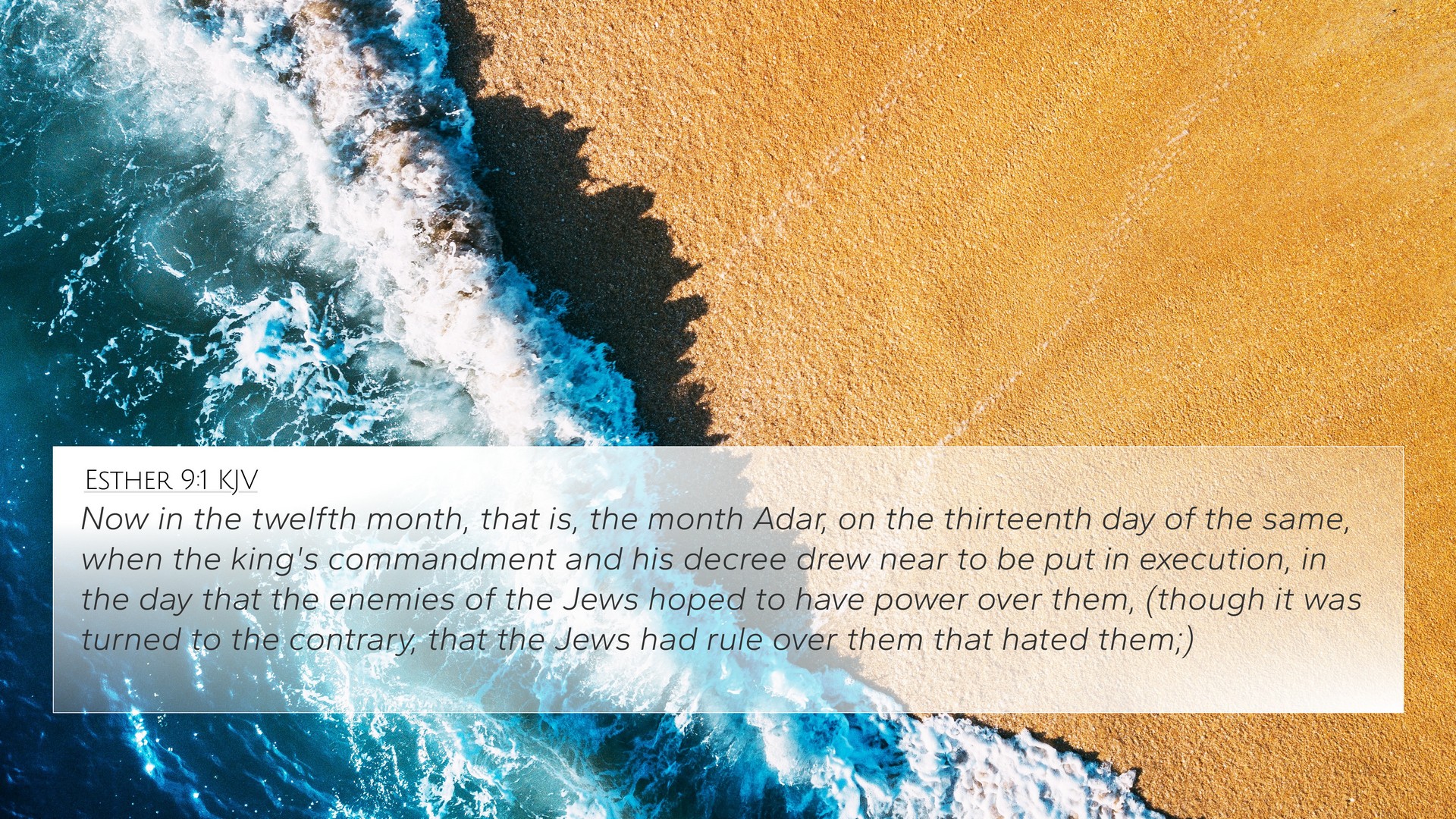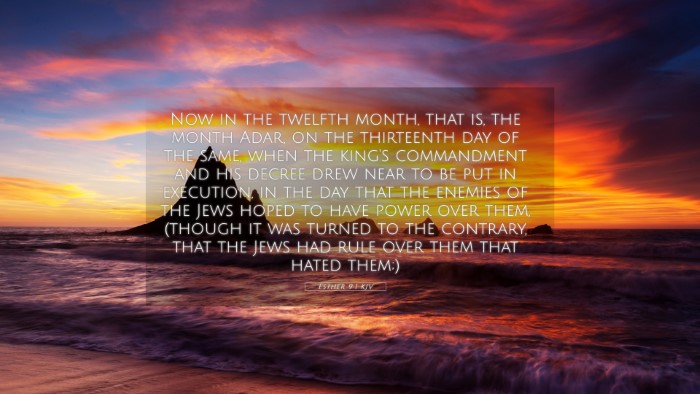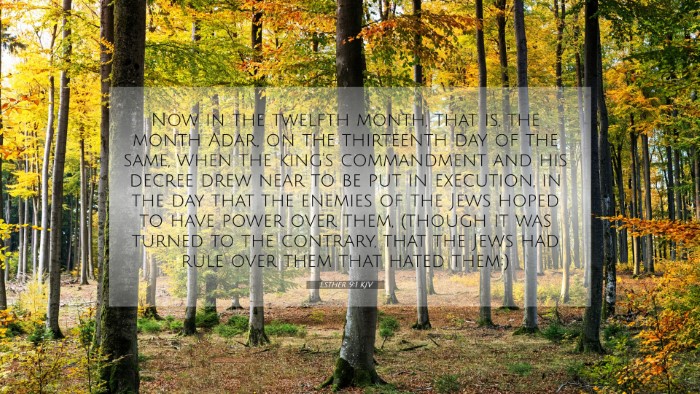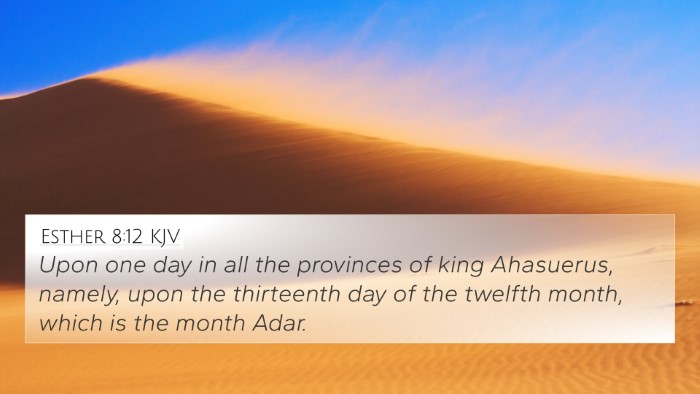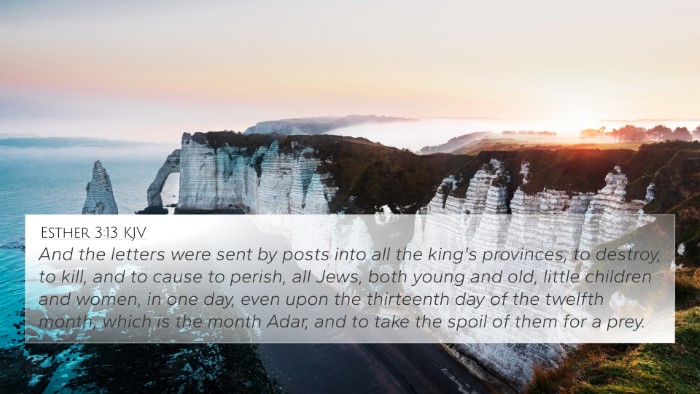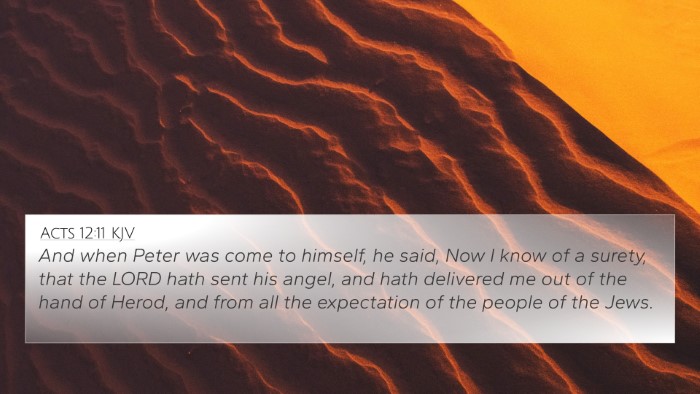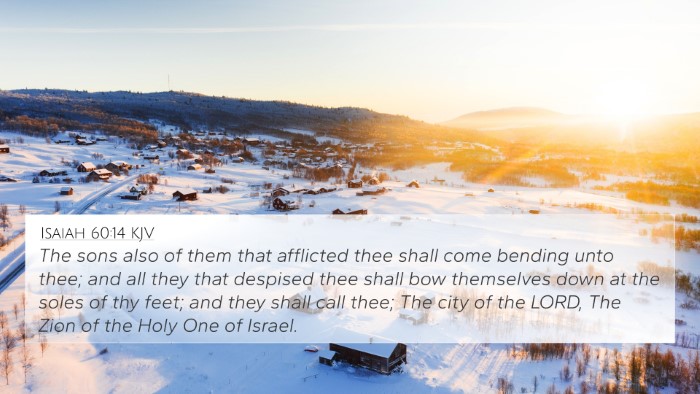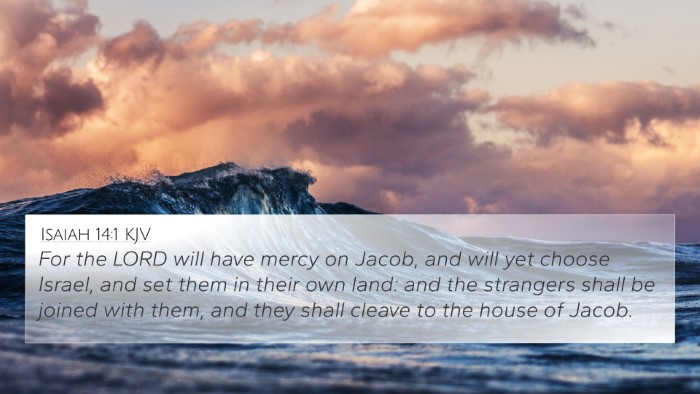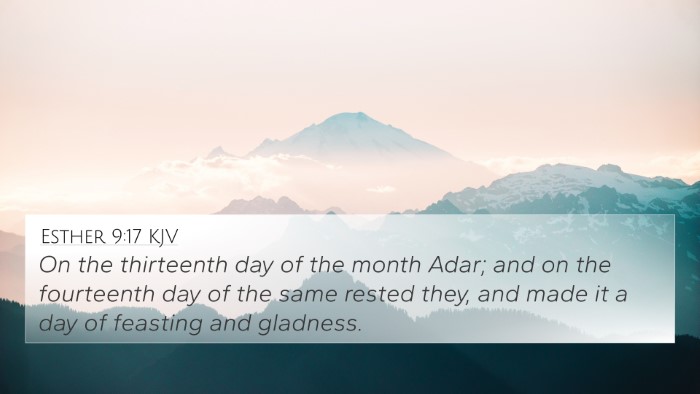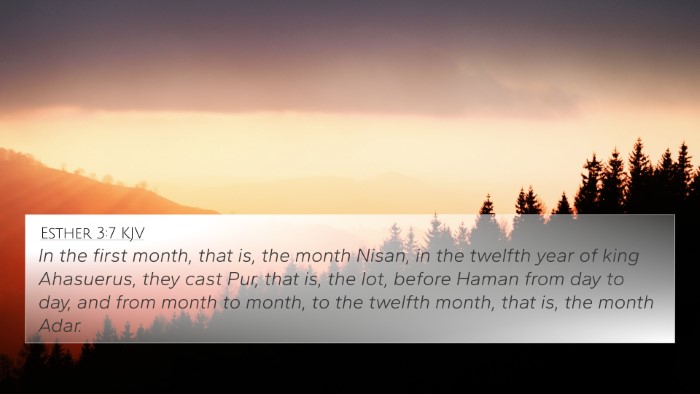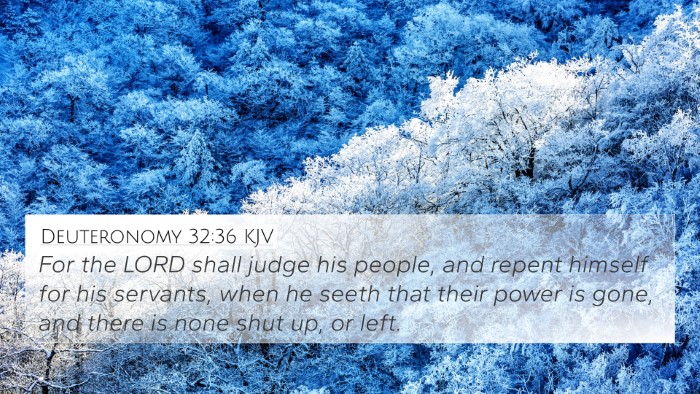Understanding Esther 9:1
Esther 9:1 states: "Now in the twelfth month, that is, the month Adar, on the thirteenth day of the same, when the king's command and his decree came to be executed, on the day that the enemies of the Jews hoped to overpower them, the opposite occurred, in that the Jews themselves overpowered those who hated them." This verse marks a pivotal moment in the story of Esther, embodying themes of reversal and deliverance.
Commentary Insights
- Matthew Henry: Henry emphasizes the dramatic irony present in this verse. The day the enemies of the Jews anticipated victory turned into a day of their defeat. This highlights God's providential care for His people and serves as a reminder that divine justice prevails.
- Albert Barnes: Barnes elaborates on the significance of the timing in this verse. The specific mention of the month Adar is essential, as it reflects the fulfillment of the Jewish calendar and God's plans for His people. The reversal of fortunes showcases the theme of salvation and vindication for the oppressed.
- Adam Clarke: Clarke points out the notable shift in power dynamics. He explains that the Jews, once facing annihilation, became empowered to defend themselves, demonstrating the importance of courage and divine intervention in moments of crisis.
Thematic Connections
The events in Esther 9:1 resonate with various other scripture themes, showcasing God’s sovereignty and the protection of His people. Here are some Bible verse cross-references that enhance the understanding of this passage:
- Psalm 30:5: "For His anger lasts only a moment, but His favor lasts a lifetime; weeping may stay for the night, but rejoicing comes in the morning." This conveys the idea that hardship may be temporary, but rescue and joy come from God.
- Isaiah 54:17: "No weapon forged against you will prevail, and you will refute every tongue that accuses you." This verse affirms God's protection over His people, paralleling the deliverance mentioned in Esther.
- Proverbs 11:8: "The righteous is delivered from trouble, and the wicked walks into it instead." Here, the reversal of fate parallels the deliverance of the Jews in Esther.
- 1 Samuel 2:1: "My heart rejoices in the LORD; in the LORD my horn is lifted high. My mouth boasts over my enemies, for I delight in your deliverance." This declaration of triumph is reflected in the victory of the Jews.
- Romans 8:31: "What then shall we say to these things? If God is for us, who can be against us?" This New Testament assurance ties into the theme of divine support seen in Esther.
- Jeremiah 20:11: "But the LORD is with me like a mighty warrior; so my persecutors will stumble and not prevail." This restores hope amidst adversity, echoing the historical reversal for the Jews.
- Lamentations 3:37-38: "Who can speak and have it happen if the Lord has not decreed it? Is it not from the mouth of the Most High that both calamities and good things come?" This links the decree in Esther with God’s overarching authority.
Cross-Referencing Themes in the Bible
This verse invites readers to engage in cross-referencing Bible study methods. Utilizing a Bible concordance, one can identify thematic links that reinforce the message of divine deliverance and justice. Below are strategies for effective Bible cross-reference guide usage:
- Identify thematic connections: Use major themes present in your passage, like deliverance or divine intervention, to find related verses.
- Utilize Bible reference resources: Employ resources that compare and contrast real-time events in Scripture alongside prophetic declarations.
- Engage in comprehensive Bible cross-reference materials: Study various translations and how different contexts enhance understanding of the same theme.
Understanding Cross-References for Sermon Preparation
For those preparing sermons or discussions, Bible cross-references for sermon preparation based on Esther 9:1 can deepen the thematic exploration of reversal and deliverance:
- Esther 4:14: Mordecai’s words remind us that God often uses people in pivotal moments of history.
- Exodus 14:14: "The LORD will fight for you; you need only to be still." This verse complements the idea of divine deliverance found in Esther.
- Psalms 124:2-3: "If it had not been the LORD who was on our side when people rose up against us." This highlights the crucial aspect of God's presence in times of trouble.
- John 16:33: "I have said these things to you, that in me you may have peace. In the world, you will have tribulation. But take heart; I have overcome the world." This resonates with the ultimate victory in Esther 9:1.
Conclusion
Esther 9:1 is rich in meaning and interconnectedness with other Biblical texts. By employing tools for Bible cross-referencing, readers can uncover layers of significance that enhance their understanding of God's unfolding plan. The connections between this verse and others reveal the comprehensive nature of Scripture, allowing believers to draw strength and comfort from these narratives of deliverance.
